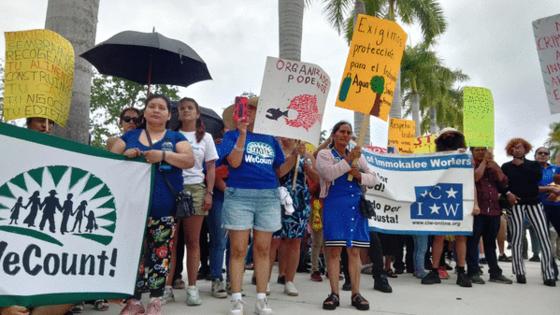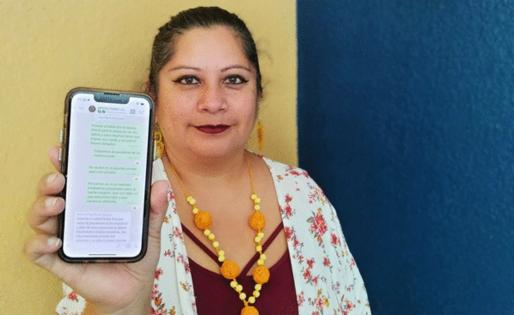To keep chats secure, more immigrant groups turn to Signal
Published in News & Features
TAMPA, Fla. — Some immigration advocacy groups are beginning to move away from popular apps like WhatsApp and toward Signal, an encrypted app seen by many as more secure, amid growing uncertainty surrounding new anti-immigration policies.
At least that’s what happened with the Florida Immigrant Coalition, a well-known group that defends immigrant families across the state.
The group stopped using WhatsApp, a popular messaging platform, for its regional discussion groups, which coordinate advocacy efforts, share news updates and organize local events.
Adriana Rivera, FLIC’s communications director, said they made the transition based on recommendations from the American Civil Liberties Union to keep it safe.
“We’re facing a difficult time and sensitive situations,” Rivera said. “We don’t want to put anyone’s life or future at risk.”
The Florida Immigrant Coalition is one of the plaintiffs in a lawsuit filed by two immigrants and another nonprofit challenging a new state law (SB 4-C) that makes it a crime to enter Florida after crossing the country without being processed by authorities. A U.S. district judge issued a temporary 14-day order last Friday blocking the law. A hearing is scheduled for April 18 to consider a permanent preliminary injunction.
Rivera said the Florida Immigrant Coalition and their regional discussion groups for north, central and south Florida spent a month posting reminders and talking to members about the move to Signal.
Signal only maintains a user’s phone number, join date and last login. Users can set messages to disappear and even hide their phone number from others. It doesn’t track activity or collect other personal data, according to its site
Jay Stanley, senior policy analyst with the ACLU Speech, Privacy, and Technology Project, said people in the privacy and civil liberties community trust Signal more because it’s run by a nonprofit that doesn’t make money off the data, and it’s open-source, meaning anyone with the right skills can verify how it is programmed.
He said that, unlike WhatsApp, Signal does not store information about who a user is messaging, when and how often. Access to such data allows authorities to map out a user’s associations, which could be exploited in various ways, Stanley said.
“Often, knowing who you’re talking to is more sensitive than what you’re actually saying,” Stanley said. “For example if you’re a whistleblower reaching out to a reporter, or you’re trying to organize a union, or the authorities don’t like your politics and want to know who else they should surveil.”
Signal has recently made headlines beyond advocacy circles. Defense Secretary Pete Hegseth used the messaging app to discuss military operations. It came to light when a journalist, Jeffrey Goldberg, Atlantic Editor-in-Chief, was added to a Signal text chain by national security adviser Mike Waltz.
Juana Lozano, a community health outreach worker with the Farmworker Association of Florida, said she also made the switch to Signal, but only in certain groups where she participates. In other community chats, Lozano will continue using WhatsApp, at least for now, she said, because it’s more popular among immigrant communities from Central America and Mexico. Lozano’s organization provides education and outreach services to farmworkers, immigrants and minorities in Central Florida.
“Many of us aren’t familiar with Signal, and it’s harder to use,” Lozano said.
WhatsApp has around 3 billion active users and Signal has more than 70 million, according to the nonprofit multimedia publication Lawfare.
Ana Lamb, a community activist in Hillsborough County, said added security is always helpful, but switching to Signal could be difficult for some of her followers. Lamb runs over a dozen WhatsApp community chat groups where she keeps the focus on tips and events, not personal details.
“There’s always some risk” Lamb said. “No platform is perfect.”
Another group, the the Council on American-Islamic Relations of Florida, said it doesn’t plan to switch, as it conducts all business communications through Microsoft Teams.
“We have no plans to change this secured communications system that we have been using for years now,” communications director Wilfredo Ruiz said
_____
©2025 Tampa Bay Times. Visit tampabay.com. Distributed by Tribune Content Agency, LLC.










Comments